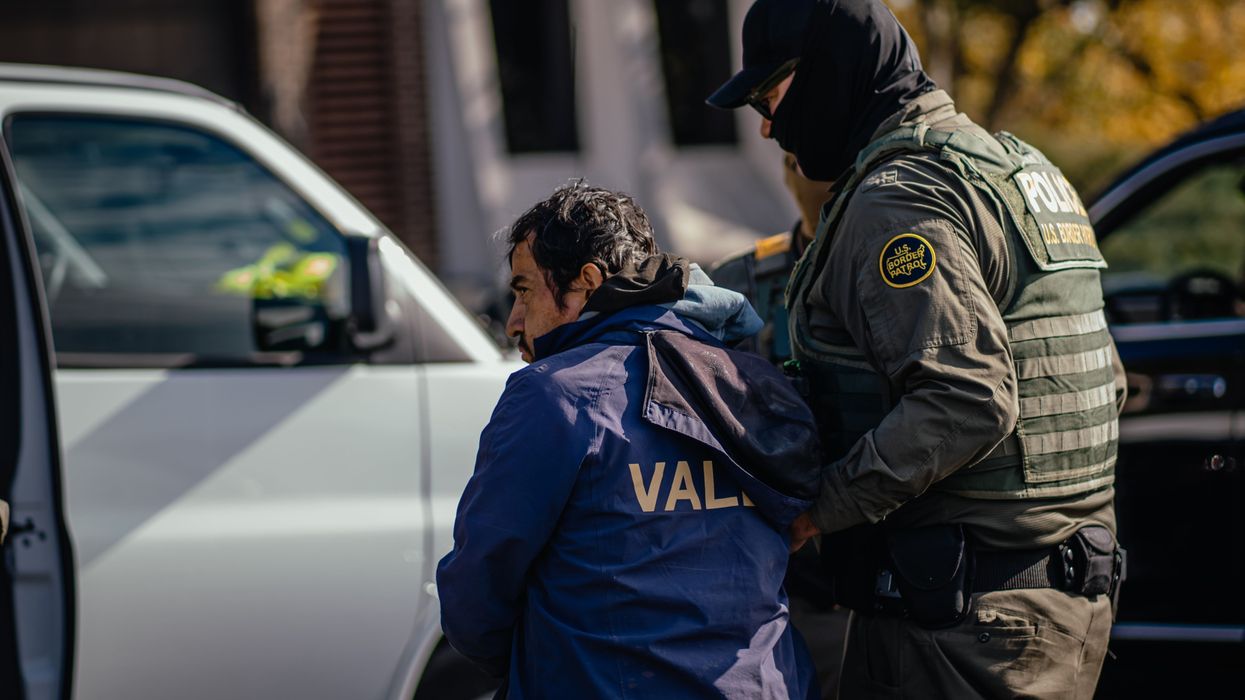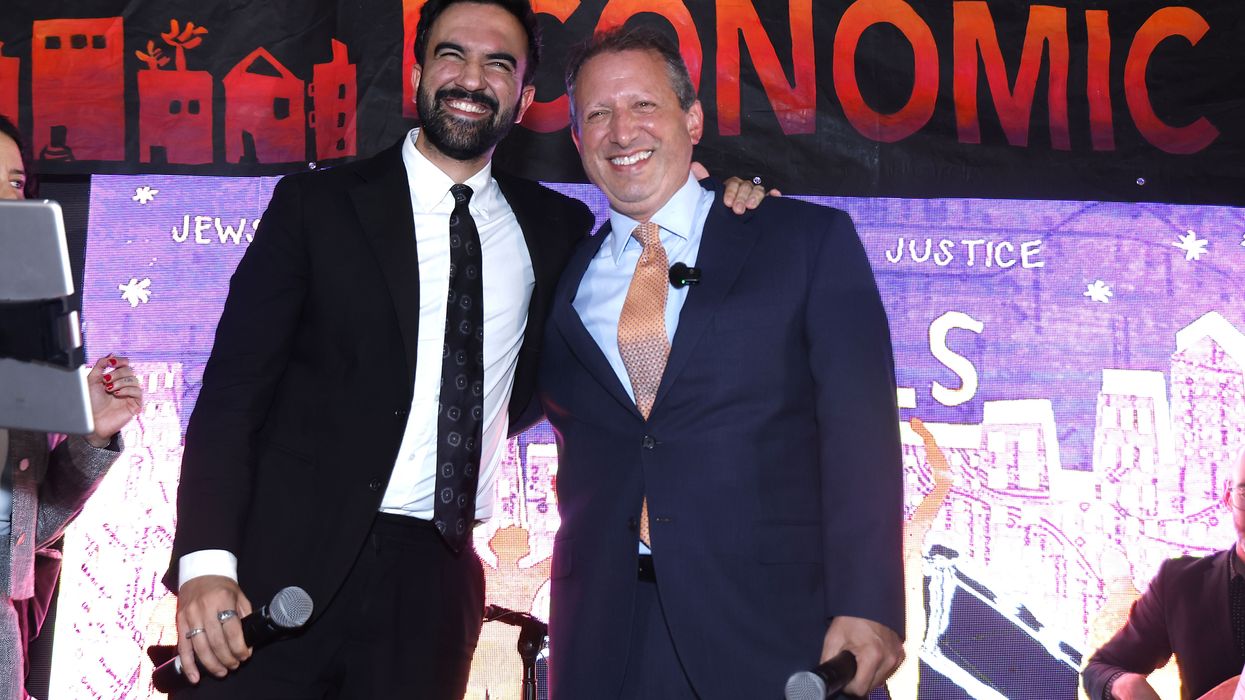January, 29 2014, 03:10pm EDT

Federal Judge Rules Lawsuit over Treatment of South Dakota Indian Parents and Tribes Can Move Forward
RAPID CITY, S.D.
A federal court has ruled that a lawsuit charging state and local officials with violating the rights of Indian parents and tribes in state child custody proceedings can go to trial.
The American Civil Liberties Union filed the lawsuit in March 2013 along with the ACLU of South Dakota and Dana Hanna of the Hanna Law Office in Rapid City. The lawsuit claims that Indian children are being removed from their homes in hearings that last no more than a few minutes, in which parents fail to receive a copy of the petition against them or have a chance to present evidence.
"We are thrilled that the court has recognized the importance of these issues to Indian parents and Indian tribes," said Heather Smith, executive director of the ACLU of South Dakota.
The case was brought on behalf of two South Dakota Indian tribes - the Oglala Sioux Tribe and the Rosebud Sioux Tribe - and three Indian parents who suffered the loss of their children after very brief hearings in state court. The parents are Rochelle Walking Eagle, Madonna Pappan, and Lisa Young, all residents of Pennington County.
The defendants are State Judge Jeff Davis, Pennington County Prosecutor Mark Vargo, State Director of the Department of Social Services (DSS) Kim Malsam-Rysdon, and Pennington County DSS employee Luann Van Hunnik. In a 43-page ruling issued late yesterday, Chief Judge Jeffrey L. Viken denied motions to dismiss the case. He ruled that if the defendants are engaging in the policies and practices listed in the lawsuit, they are violating the federal rights of Indian children, parents, and tribes.
In a separate ruling, the judge held that the plaintiffs could represent a class of all Indian parents who are members of federally recognized Indian tribes and reside in Pennington County. He also granted a request filed by the plaintiffs to expedite certain aspects of the case due to the important interests at stake.
In 1978, Congress passed the Indian Child Welfare Act (ICWA) which, as Judge Viken points out, was intended "to curb the alarmingly high rate of removal of Indian children from Indian parents." He agreed that if the plaintiffs prove at trial that the defendants are engaging in the practices challenged in the lawsuit, the defendants are violating that law, as well as plaintiffs' constitutional right to due process.
"This is an important step forward for the rights of Indian families and tribes," said Stephen Pevar, senior staff counsel with the ACLU's Racial Justice Program. "We are grateful to Chief Judge Viken for taking the time to examine the complex issues raised in this case and for his sensitivity to the goals of the Indian Child Welfare Act."
Rapid City attorney Dana Hanna, a co-counsel in the federal case, noted, "I have attended many of these cursory custody hearings in Pennington County and have repeatedly raised ICWA issues, to no avail. It's vital that these federal issues will receive adequate attention."
The lawsuit, Oglala Sioux Tribe v. Van Hunnik, was filed in U.S. District Court for the District of South Dakota in Rapid City.
More information on this case is available at:
aclu.org/racial-justice/oglala-sioux-tribe-v-van-hunnik
This press statement is available online at:
aclu.org/racial-justice/federal-judge-rules-lawsuit-over-treatment-sd-indian-parents-and-tribes-can-move
The American Civil Liberties Union was founded in 1920 and is our nation's guardian of liberty. The ACLU works in the courts, legislatures and communities to defend and preserve the individual rights and liberties guaranteed to all people in this country by the Constitution and laws of the United States.
(212) 549-2666LATEST NEWS
New DHS Database Suggests That Less Than 5% of Those Arrested by ICE Are the ‘Worst of the Worst’
The database contains just 9,738 total people, a tiny fraction of the more than 220,000 ICE data says the agency arrested between January 21 and October 15.
Dec 10, 2025
In response to criticism of its aggressive and often lawless "mass deportation" campaign—which has entailed sweeping raids by masked agents, the use of squalid detention centers rife with torture, overt racial profiling, and the near-total abrogation of due process—the Trump administration has often fallen back on a familiar refrain: that the immigrants it targets are "the worst of the worst" dangerous criminals.
Immigration data published throughout the second Trump administration has already undermined this claim. Last month, David J. Bier of the Cato Institute published new data showing that between October 1 and November 15, only 5% of those booked into ICE detention had violent criminal convictions, while 73% had no convictions at all. It mirrored previous data published by Cato in June, which showed that 65% arrested had no criminal convictions of any kind, while 93% had no violent convictions.
Justice Department data published last month, meanwhile, showed that of the at least 614 people snatched up in the Operation Midway Blitz crackdown in Chicago, just 16 had criminal records of any kind.
On Monday, the Department of Homeland Security published its own "Worst of the Worst" database seeking to reverse the narrative, but it seems to have done the opposite.
"DHS has launched WOW.DHS.GOV for Americans to see the criminal illegal aliens that we are arresting, what crimes they committed, and what communities we removed them from," read a post from the agency on social media.
The post leads to a website containing the names, photos, and nationalities of those arrested by ICE. It also lists alleged past criminal convictions. In many cases, the only documentation of the allegations, if any is provided at all, is a DHS press release rather than official court records.
"Under Secretary [Kristi] Noem's leadership, the hardworking men and women of DHS and ICE are fulfilling President Trump's promise and carrying out mass deportations—starting with the worst of the worst—including the illegal aliens you see here," a header on the website reads.
Among those listed are people who DHS says have been convicted of heinous crimes, ranging from attempted murder to child abduction to domestic battery.
But the database contains just 9,738 total people, a tiny fraction of the more than 220,000 ICE data says the agency arrested between January 21 and October 15.
"So DHS is implicitly admitting that less than 5% of the people it arrests are people they believe are 'the worst of the worst,'" said Aaron Reichlin-Melnick, a senior fellow at the American Immigration Council.
Moreover, even some of those listed among the "Worst of the Worst" have only nonviolent offenses to their name, like drug possession, shoplifting, or disorderly conduct.
Reichlin-Melnick also noted that while immigration law does not require a criminal conviction for a person to be removed, "it matters because the administration talks as if these cases are the majority."
"There are definitely bad people on there who deserve deportation, but plenty of others on the list have nothing worse than a misdemeanor," he said. “If the administration were to actually focus its resources on people who were serious public safety threats or fugitives, there would be less of an outcry. But data shows that the big focus has been on boosting numbers by going after people no previous administration, Republican or Democrat, prioritized.”
Keep ReadingShow Less
Trump Escalates in Venezuela With 'Illegal' US Seizure of Oil Tanker
“Millions of civilians will be at risk if the economy deteriorates and tensions rise," warned one anti-war group.
Dec 10, 2025
The US military on Wednesday seized an oil tanker off the coast of Venezuela in the latest act of aggression against a nation that President Donald Trump has been openly threatening for several weeks.
Bloomberg, which described the move as a "serious escalation" in tensions between the US and Venezuela, reported that the seizure of the tanker by US forces "may make it much harder for Venezuela to export its oil, as other shippers are now likely to be more reluctant to load its cargoes."
The seizure was described to Bloomberg by a Trump administration official as a "judicial enforcement action on a stateless vessel" that had been docked in Venezuela.
Shortly after the seizure occurred, Trump boasted about it during a meeting with business leaders at the White House, declaring that the tanker was the "largest one ever seized."
Trump: "It's been an interesting day from the standpoint of news. As you probably know, we've just seized a tanker on the coast of Venezuela. Largest one ever seized actually. And other things are happening." pic.twitter.com/wyOYMKCJTT
— Aaron Rupar (@atrupar) December 10, 2025
Just Foreign Policy, a progressive think tank and advocacy group, condemned the seizure of the tanker, describing it as an "illegal US move to take control of Venezuela's natural resources and strangle the economy, which is already struggling under indiscriminate US sanctions," and warning that "millions of civilians will be at risk if the economy deteriorates and tensions rise."
The seizure of the oil tanker is just one of many aggressive maneuvers that the Trump administration has been making around Venezuela.
Starting in September, the administration began a series of murders of people aboard boats in the Caribbean Sea off the coast of Venezuela and in the Pacific Ocean.
The Trump administration has claimed those targeted for extrajudicial killing are drug smugglers and accused Venezuelan President Nicolás Maduro of leading an international drug trafficking organization called the Cartel de los Soles, despite many experts saying that they have seen no evidence that such an organization formally exists.
Trump late last month further escalated tensions with Venezuela when he declared that airspace over the nation was “closed in its entirety,” even though he lacks any legal authority to enforce such a decree. Trump has also hinted that strikes against purported drug traffickers on Venezuelan soil would occur in the near future.
Keep ReadingShow Less
'Relentless Fighter for Working People': Mamdani, Sanders Back Lander Bid for US House
"I’m running for Congress because we need leaders who will fight, not fold," said Brad Lander, who is aiming to unseat Democratic Rep. Dan Goldman.
Dec 10, 2025
Outgoing New York City Comptroller Brad Lander announced Wednesday that he is running to unseat Democratic US Rep. Dan Goldman, a primary bid launched with the support of New York City Mayor-elect Zohran Mamdani and the nation's most prominent progressive lawmaker, Sen. Bernie Sanders.
"I’m running for Congress because we need leaders who will fight, not fold," Lander wrote in a social media post announcing his run to represent New York's 10th Congressional District.
Lander's campaign launch comes after a closely watched mayoral race in which he and Mamdani endorsed each other during the primary process—a strategic alliance aimed at ensuring the defeat of former New York Gov. Andrew Cuomo under the city's ranked-choice voting system.
Goldman, who was elected to Congress in 2023, did not endorse Mamdani after he prevailed in the mayoral primary.
In a statement on Wednesday, Mamdani said that "Brad’s unwavering principles, deep knowledge, and sincere empathy are what make him a true leader."
"He has been a trusted ally and partner of mine," the mayor-elect added, "and I’m proud to support him as I know he’ll continue delivering for those who need government to show up for them the most."
"He and Zohran Mamdani proved that when ordinary people stand united, we can take on the billionaire class, and we can defeat corporate-dominated politics."
Sanders, a key early backer of Mamdani's bid to lead New York City, joined the mayor-elect in endorsing Lander, calling him a "relentless fighter for working people."
"He’s spent the past two decades taking on big corporations, winning better wages and fair working conditions for New Yorkers, including major victories for fast food workers, delivery workers, and tenants," the senator said. "During the recent mayoral election, he and Zohran Mamdani proved that when ordinary people stand united, we can take on the billionaire class, and we can defeat corporate-dominated politics."
"Brad Lander is a public servant who will bring a much-needed voice to Congress," Sanders continued. "He will deliver for the people of New York and all working-class Americans. I am proud to endorse him."
Lander also secured the day-one support of US Sen. Elizabeth Warren (D-Mass.), New York City Public Advocate Jumaane Williams, and the New York Working Families Party (NYWFP).
“We know that as congressman, Brad Lander will continue to lead the fights to protect immigrants, to stand up for workers, and to make New York a place where working families can afford to live and thrive," said Ana María Archila and Jasmine Gripper, co-directors of NYWFP. "And most of all, we know he will continue to build a movement strong enough to defeat Donald Trump and the forces of authoritarianism by practicing a kind of politics that makes a true, multi-racial democracy possible."
"These are uncharted times—and we know Brad Lander has what it takes to represent NYers in Washington," they added. "We are all in and ready to win!"
Keep ReadingShow Less
Most Popular


